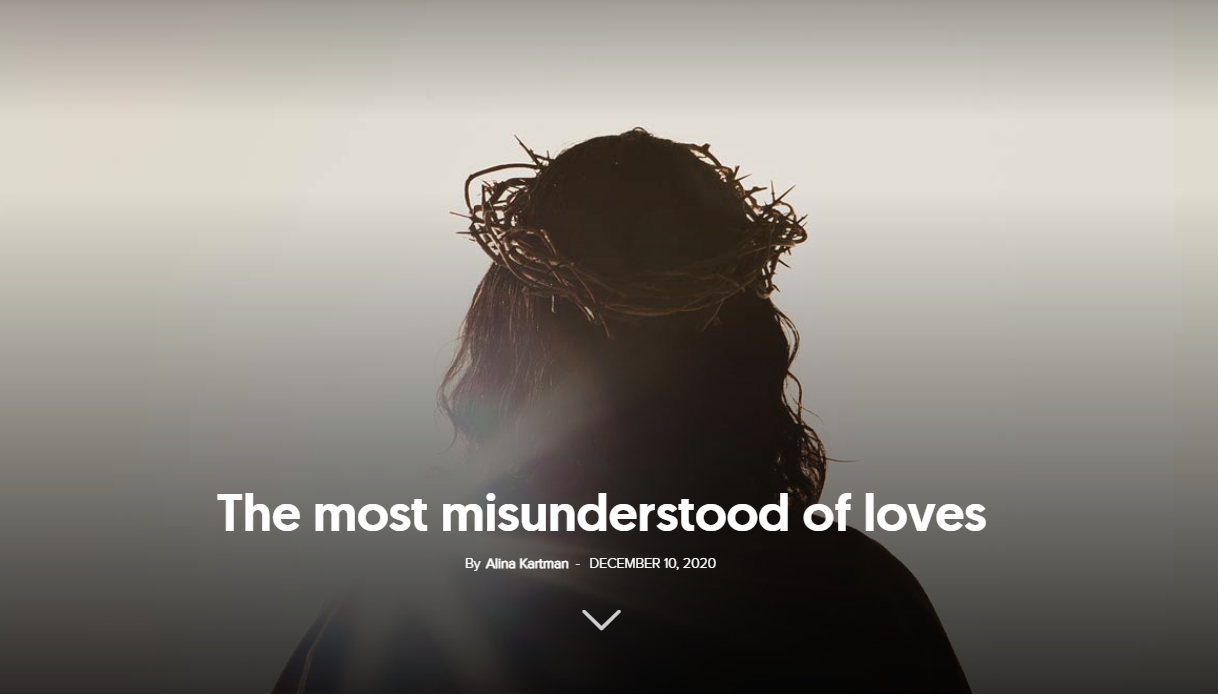To be a good Christian, they say, you must not swear, steal, lie, cheat or speak ill of anyone.
Similarly, good Christians abstain from all vices and any kind of excess or extravagance in their lifestyle, believe in the sanctity and exclusivity of marriage, and do not consider abortion as a method of contraception. These are just some of the characteristics of what many people consider to be an ‘impossible’ life.
Is Christianity a straitjacket?
Is Christianity a religion of restrictions? Why are Christians not allowed to do so many things? How can liberty be understood in the context of these prohibitions? My childhood was full of questions, couched in words that would make any child cringe (“The Christian is not allowed to do such-and-such”, “Why aren’t you people allowed to do such-and-such?”), which I received from classmates or playmates.
In The Reason for God, Timothy Keller addresses the issue of freedom in relation to the Christian faith. Chapter 3 counters the view of activist Emma Goldman in The Failure of Christianity that Christianity is a straitjacket. Keller’s approach begins with the definition of truth and community and ends with a description of the cultural adaptability of Christianity.
Is the Christian truth the enemy of freedom?
The opponents of Christianity believe that there is no absolute truth and no fundamental meaning to life. No one has a purpose, but everyone is called to find one. According to the existentialist view of life, we’re not meant to be or to become anyone, but we are obliged to find meaning and purpose. But the assumption of the existence of truth is the assumption of any kind of human coexistence. If there were no objective truth, not even the assertion that everything is relative could be true, nor could the assertion that there is no truth be considered true. So truth is inevitable.
However, when truth is defined in the Christian paradigm as absolute truth, it becomes the enemy of freedom in the eyes of the disputants. To live according to what God says, they assert, is to lose one’s personality in order to conform to the narrow-mindedness of an absolute truth. Instead, say Christianity’s challengers, in order to have a fully free personality we must live for ourselves and for our own sake, not for God and for His sake.
When we speak of living for and in accordance with a certain will, we are referring to authority. A person’s role, power, age, and abilities give them the authority to lead. If there is an implicit hierarchy in any system, it is even more so in the relationship between us and God. The idea of God implies sovereignty, God’s right to rule. What puzzles the opponents of Christianity is the claim of Christians to see their religion as one of freedom. If we are free, why should we obey God? Because He wants us to? And why does God want us to live in one way or another? Because He can rule us and He likes it that way?
Enslaved for God’s sake?
When we refer to the idea of living for and for the sake of God, we are referring to motivation. We live within God’s established principles because we love Him. God first loved us and we respond to His love. Does this mean that His love constrains us? If so, this kind of acceptance of constraints speaks of a substitute, unappealing freedom. We stay within the limits God has set us out of respect and gratitude to the One who has done us good. We listen to Him, but we may not like what we are told to do. We do it for Him, out of selfless motives, but without identifying ourselves with what we are doing.
Freedom means responsibility
Freedom is often used as an excuse to allow harm. This kind of will, of “I will do what I want”, is Luciferian freedom. By seeking independence from God, you detach yourself from any kind of authority that might forbid you to do something. This kind of liberty, which was at the heart of the French Revolution, forbade any kind of limitation, but this very principle became a prohibition and therefore a violation of itself.
Freedom means responsibility, which is obedience to discipline. In its absence, the direction in which love is exercised shifts away from people towards the self, and thus self-love arises, which the Bible identifies as the way to destruction. Selfishness defines humanity’s fallen nature, which manifests itself in a perverted and powerless will. Not only do people often desire bad things, but even when they desire good things, they are sometimes unable to do them. Sin clings to them.
Love is doing what is right
When Jesus Christ was asked what was the most important law of all, He said it was the law of love: to love your neighbour and to love God. He who loves fulfils all the laws because they all meet in love. In other words, freedom is found in love—if you love you can do what you want, because in reality, when you love, you do what is good and right.
Love for God is the declaration of the loss of personal independence. In the family, both partners give up their independence and only through mutual dependence can they become one. Each swears unconditional love to the other in a covenant. I will love you, I will understand you, I will please you, I will change for the better, I will take care of you, and so on, regardless of the context in which we live. The two partners promise to be faithful until death do them part.
Jesus Christ did much more than this for us. For our sake, He took on human nature, lived as one of us and died in our place. After His resurrection, Scripture tells us, He will see His ‘offspring’, His will will prosper, and He will be united in a marriage-like covenant with all who love Him (Isaiah 53:10).
Through faith in the grace of Jesus, human beings become capable of doing good. Freedom depends on power. Without power, it does not matter whether you are free or not. What good is the freedom to do something if you don’t have the power to do it? Christ sacrificed Himself to atone for our sins and to give us the power to resist sinning.
Christians are not accepted by God on the basis of following some restrictions, but are drawn by faith to the grace of Jesus. As a result of God’s love and transforming grace for us, our minds come to understand the good that divine restrictions produce. Such understanding creates the capacity to live meaningfully and joyfully within principles that appear restrictive from the outside. The Bible describes God’s law as pleasing to the one who understands it (Psalm 119:91-94), while Romans 7:12 describes the law as “holy…righteous and good.”
You become a bird when you fly
Liberty is distinguished from libertinism by the fact that the principles of responsibility, with all their implicit limitations, are part of it. Freedom is not constituted in the absence of restrictions, but in the presence and acceptance of restrictions that are beneficial to the individuals and the society of which they are a part.
The word for “bird” in Sanskrit means “twice born”. The second birth of the bird is when it learns to fly; if it does not fly, it is not a bird. Similarly, being human, from a biblical perspective, involves not only biological birth, but also a rebirth—an encounter with Jesus Christ who regenerates the moral nature of mankind and who, through exposure to the truth, helps us to learn how to live in freedom or, expressed differently, how to love. “Love and do what you will” implies the recognition and acceptance of responsibility with its beneficial limits.
Ștefăniţă Marian Poenariu addresses the constraints of the Christian faith, considering limits as a multiplying factor of identity, relevance, and freedom.




















